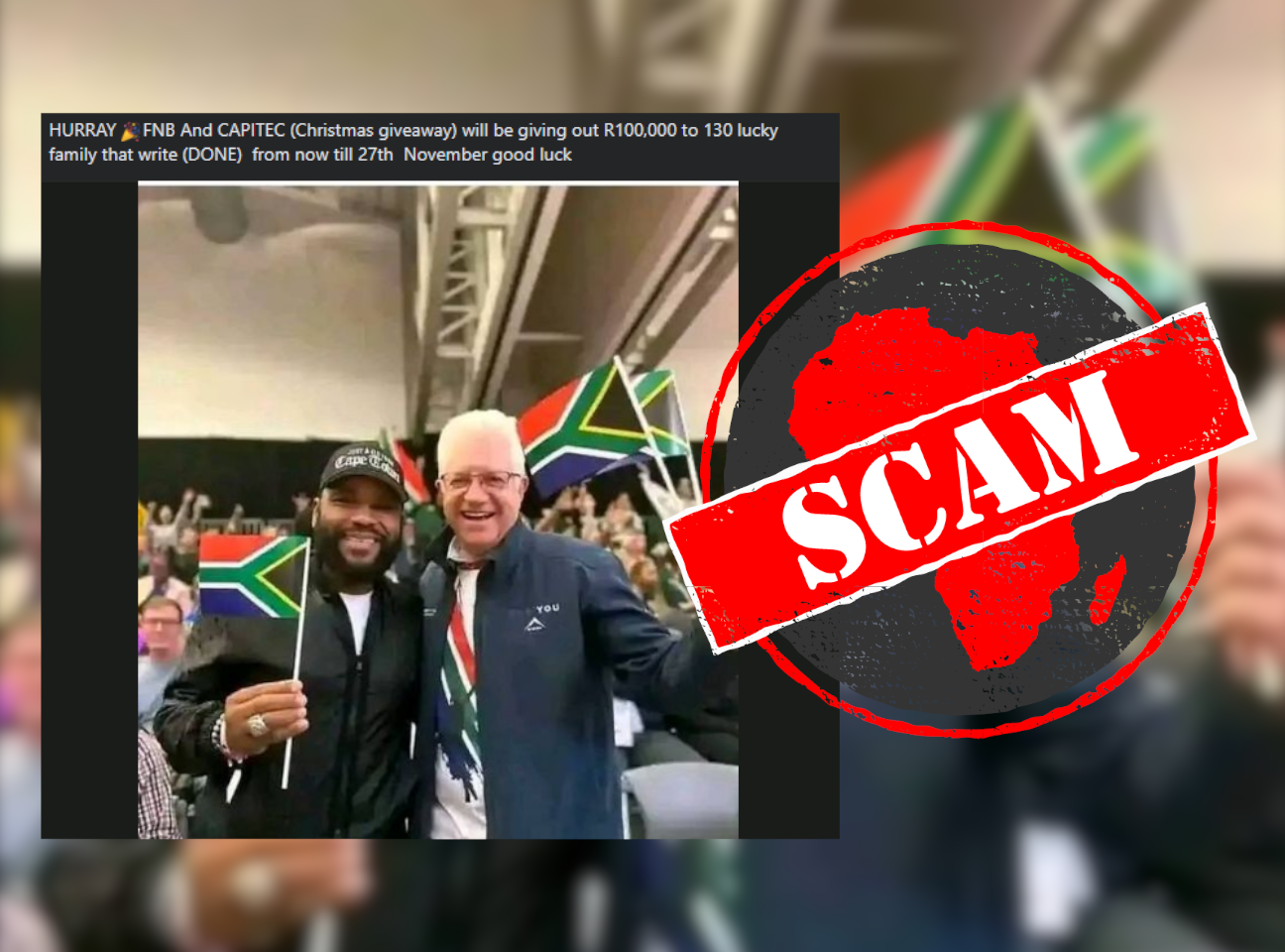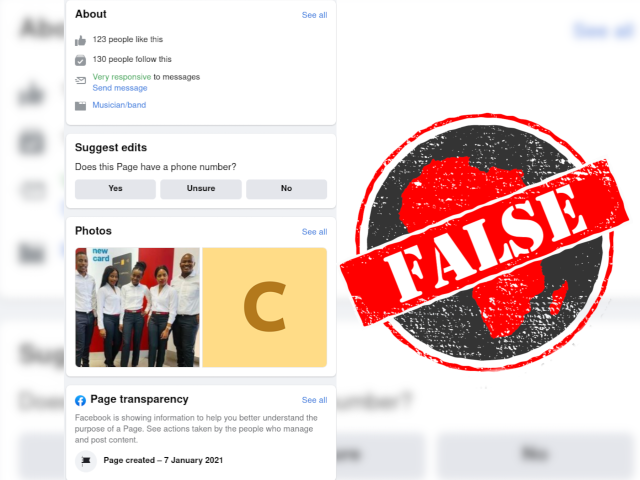IN SHORT: Social media posts claim that two South African banks are giving out large sums of money for the 2023 holiday season. But this is a scam – stick to official portals for competition or giveaway opportunities.
“HURRAY 🎉,” starts a post doing the rounds on Facebook in South Africa, which has been shared to a public group with over 83,000 members.
“Capitec (Christmas giveaway) will be giving out R20,000 to 130 lucky family that write (DONE) from now till 10th December good luck,” the post reads.
Capitec Bank is a South African retail bank.
The same message has been posted to other public groups with thousands of members, with some versions of the post claiming that FNB is also giving away money for Christmas 2023.
First National Bank, or FNB, is one of South Africa's largest banks.
These posts previously did the rounds in October, telling readers they had until various dates in November to comment “done” to receive the cash prize. Some versions of the post include different amounts of money as the “giveaway prize”, varying from R4,000 to R100,000.
Oddly, some of these were posted in early December, despite a due date of 30 November, a date already passed.
So what’s going on here? Has Capitec and FNB given away large amounts of money on Facebook to users who simply comment “done” on their posts?
We checked.

Scam posts ask users to comment
The first red flag is that the posts have been shared to unrelated Facebook groups that have nothing to do with Capitec, FNB, or any type of banking.
For example, one post has been shared to a public group called “USA DATING SITE”.
Another red flag is that the posts are badly written: there are grammatical errors and spacing issues within the text, as if it has been slightly altered with every reshare on Facebook.
Posts that ask you to comment are also suspicious. Asking readers to simply comment in order to receive a prize is a type of engagement bait. This is done to try to increase the reach of the post or Facebook page sharing the post.
No evidence of Capitec or FNB giveaway
Since the Facebook posts don’t link to the official websites for the banks, where users could possibly collect these prizes, we performed a quick Google search to see if there were any official announcements for the giveaways.
Our Google search came up empty. Although both Capitec and FNB occasionally run competitions and giveaways, they’re always promoted on official platforms and aren’t usually for such large amounts of money.
On their website, Capitec advises that users should always “verify the brand or person who is promoting a competition … by making sure the account is verified”.
FNB also warns users to be wary of social media posts that promise large sums of money for little or no effort.
So what can you do when you see posts like this? It’s important that you don’t press share, without verifying the claim. Facebook scams thrive by reaching as many users as possible. Instead of spreading the dodgy post further, just keep scrolling.
Republish our content for free
For publishers: what to do if your post is rated false
A fact-checker has rated your Facebook or Instagram post as “false”, “altered”, “partly false” or “missing context”. This could have serious consequences. What do you do?
Click on our guide for the steps you should follow.
Publishers guideAfrica Check teams up with Facebook
Africa Check is a partner in Meta's third-party fact-checking programme to help stop the spread of false information on social media.
The content we rate as “false” will be downgraded on Facebook and Instagram. This means fewer people will see it.
You can also help identify false information on Facebook. This guide explains how.





Add new comment